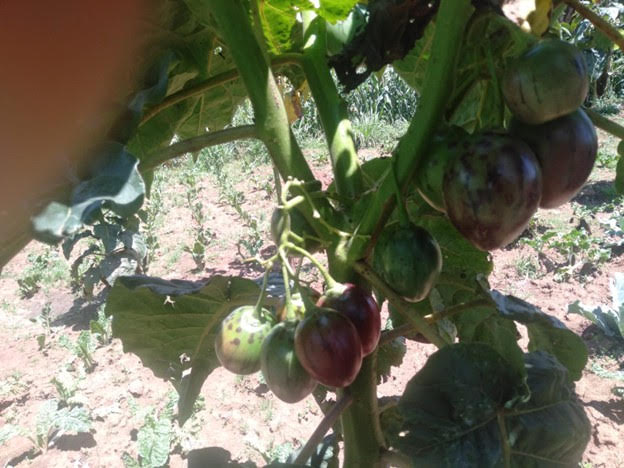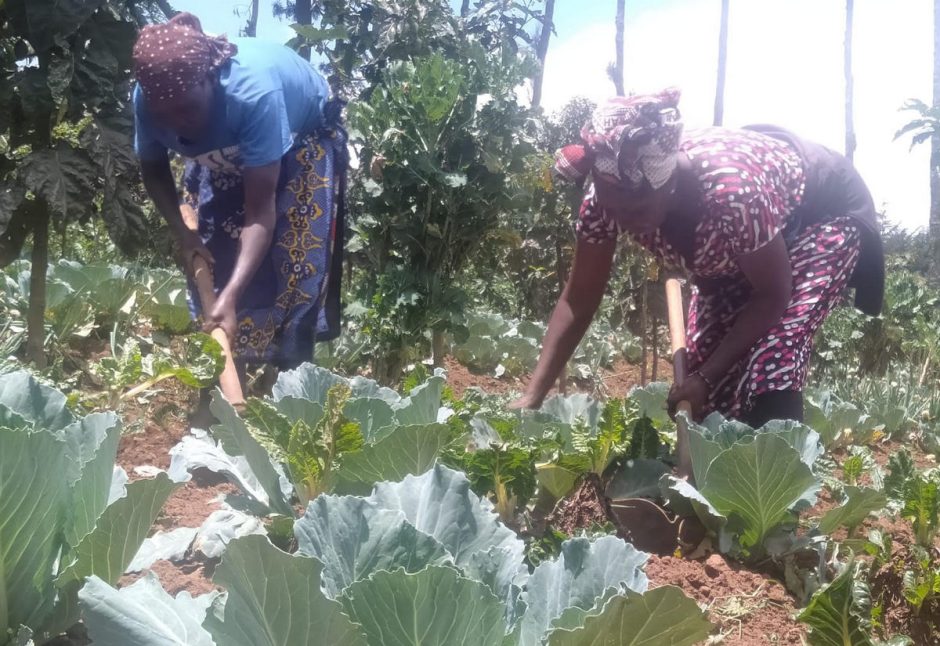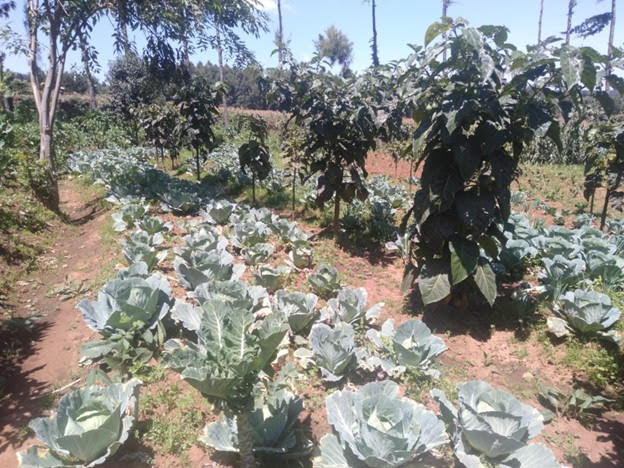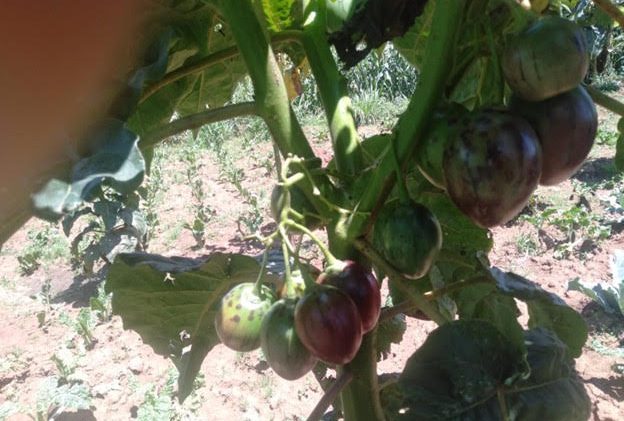November 2024
Update on the East Africa Permaculture Project – Kenya
We are excited to bring you a fresh update on the East Africa Permaculture Project in Kenya, where sustainable agriculture is transforming lives and uplifting communities.
Currently managing three active permaculture sites, this project provides essential organic food to those who need it most, including widows and impoverished families.
The progress we have seen would not be possible without the dedicated support of ICO, and the many hands that have joined in this effort.
Growing Resilience Through Food Forests
Our permaculture sites are developing into vibrant “food forests” rich in diversity. Each site follows a seven-layer design that mimics natural ecosystems, blending fruit trees, shrubs, vines, ground cover, and more.
This layered approach not only maximizes productivity but also nurtures the land, promoting healthy soil and natural pest control. Although we are progressing phase by phase, the community can already see the results—a thriving, sustainable ecosystem that promises to bear fruit for years to come.
These food forests stand as a testament to the power of permaculture. They are not just sources of food; they are living classrooms where people learn the value of biodiversity, the benefits of organic methods, and the rewards of patience and care.
Community Gardens Transforming Lives
One of our most inspiring achievements is in the Kisii Ndogo community. Here, residents who once struggled with limited land now practice permaculture through compact kitchen gardens. Even in small spaces, they have discovered that they can grow a variety of vegetables and greens, providing fresh food for their families and neighbors.
The 30×75-meter demonstration plot, initially met with skepticism, has become a symbol of what is possible. Today, nearly every household in Kisii Ndogo has adopted some form of permaculture in their homes.
This progress would not have been possible without the vision of ICO, who inspired the community to take ownership of their food security and well-being. The kitchen gardens have provided immediate benefits and created a culture of resilience and self-reliance that is spreading across the region.
Sr. Teresa’s Site – A Model of Year-Round Greenery
Another permaculture success story is Sr. Teresa’s site, which remains green and productive all year. Residents from neighboring areas visit regularly, often purchasing fresh greens grown organically on-site. Despite harsh weather conditions and unpredictable seasons, the gardens here flourish, defying the typical cycles of drought and scarcity. This site is not only a food source but also a model of resilience and a beacon for sustainable living in Kenya.
The site has become a hub of learning, with visitors drawn to its year-round productivity and eco-friendly methods. Other communities now look to Sr. Teresa’s site as a blueprint for creating similar resilient food systems. Each visitor leaves with new skills, inspired to build their own sustainable gardens and share these practices with others.
Tackling Climate Challenges with Innovation
In a time of unprecedented climate challenges, from erratic rainfall to biodiversity loss, permaculture offers practical solutions. Unlike conventional agriculture, which often exacerbates these issues, permaculture builds resilience. By mimicking natural ecosystems, permaculture maintains productivity even under difficult conditions, using techniques that conserve water, improve soil health, and encourage biodiversity.
Our focus on kitchen gardens, organic farming, and sustainable food programs has become a talking point among visitors and locals alike. More people are now recognizing the difference between conventional agriculture and permaculture, understanding that sustainable systems are key to long-term food security and ecological balance.
Permaculture has become a movement for change, sparking conversations about sustainability, responsibility, and innovation in farming.
Empowering Local Leaders
Christine and Monica, two dedicated women working on one of the permaculture sites, have emerged as local leaders. They are not only caretakers but also educators, sharing their skills and knowledge with community members and guiding new visitors through the site.
Their journey from learners to leaders embodies the spirit of this project – empowerment through education and hands-on experience.
They have become role models, inspiring others to embrace permaculture and lead by example.
Heartfelt Thanks
The success of the East Africa Permaculture Project is a shared achievement. Thanks to the tireless efforts of Mark, Josanne, ICO and everyone who has supported this mission, we are fostering resilience, sustainability, and hope in communities across Kenya. Your support has been instrumental in every garden planted, every harvest gathered, and every life changed.
Thank you for being a part of this journey, for believing in the vision of a greener, self-sustaining future, and for helping communities take control of their food security. Together, we are sowing seeds of change, one garden at a time.
Joash Barasa
Field Manager





